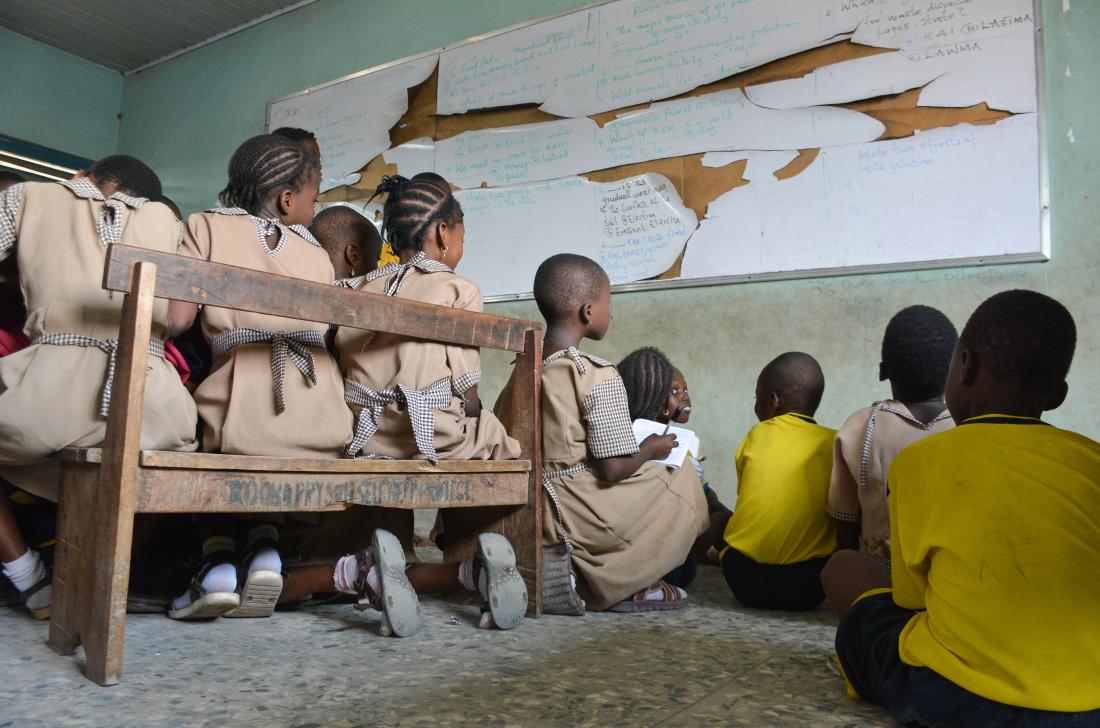The Impact of Rapid Performance Feedback on Student Achievement in Nigeria
Although primary school enrollment rates have risen across low- and middle-income countries around the world, student learning outcomes lag behind, limiting human capital development and economic growth, particularly in sub-Saharan Africa. In response, researchers are partnering with Bridge International Academies to evaluate the impacts of interleaved problem sets, which allow for rapid performance feedback, on students’ learning outcomes in Nigeria.
Policy issue
While most low- and middle-income countries around the world have made significant progress in achieving universal primary school enrollment, they remain far behind high-income countries when it comes to learning outcomes. With children and youth struggling to achieve minimum proficiency standards in reading and mathematics, developing countries, particularly in sub-Saharan Africa, may need to focus on improving their quality of education to enable human capital development and economic growth. However, there is considerable debate on how to improve education quality, and whether approaches shown to be effective in high-income country contexts can be effective elsewhere. A body of quasi- and non-experimental studies suggests that interleaved problem sets, in which questions are rearranged based on strategy, may improve learning outcomes but these studies are small-scale. To generate rigorous research on the impact of interleaved problem sets on students’ learning outcomes, researchers are conducting an evaluation in Nigerian schools.
Context of the evaluation
Bridge International Academies, a for-profit education organization, runs pre-primary and primary private schools using a unique education model that leverages technology to train and support underserved communities. Bridge schools are intended to be low-cost, charging US$6.60 per student per month, in order to reach the most marginalized children. As part of its regular operations, Bridge uses technology to not only deliver education services but also collect detailed performance data on students, teachers, and schools. As of 2018, Bridge operates in over 500 private schools across India, Kenya, Liberia, Nigeria, and Uganda, and an additional 1,100 government primary schools in Nigeria.

Details of the intervention
In September 2018, researchers partnered with Bridge International Academies to evaluate the effectiveness of interleaved reading problem sets on improving reading outcomes among grades 5 to 6 students in Nigeria.
The intervention replaced students’ traditional blocked problem sets, which group questions together based on strategy, with interleaved problem sets, which rearrange questions so that no two consecutive problems require the same strategy to answer. Bridge randomly selected 61 schools in Nigeria, of which 31 were randomly assigned to receive interleaved problem sets to practice concepts learned in class from September 2018 to April 2019. The remaining 30 schools continued using blocked problem sets for comparison purposes.
Learning outcomes were measured via internally administered tests. Drawing from Bridge’s administrative data, researchers measured student attendance, retention, and test scores in math, English, Kiswahili, and social studies.
Results and policy lessons
Research ongoing; results forthcoming.
De Laat, Joost and Michael Kremer. “A/B Testing Education Production: An Evaluation of Three Innovations to Improve Parental and Classroom Inputs in Child Learning and Academic Achievement.” J-PAL Post-Primary Education (PPE) Initiative Round 11 Proposal.
